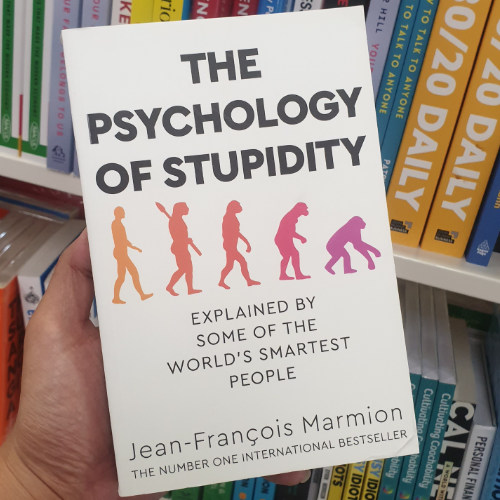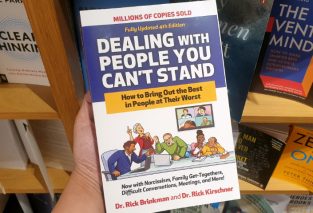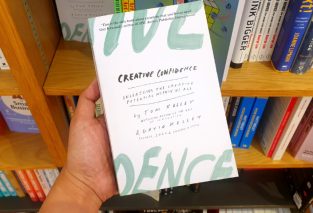Explore why people make irrational choices and overlook logic. Understand the influence of emotions, biases, and societal factors on foolish behavior. Gain insights into improving critical thinking.

Jean-François Marmion’s The Psychology of Stupidity is an eye-opening kaleidoscope of essays that untangles the complex web of human irrationality.
Through a curated selection of insights from psychologists, scientists, and thinkers, Marmion invites us to explore why we, as humans, often stumble into the pitfalls of irrational behavior.
Some of the contributors include Dan Ariely, Antonio Damasio, and Aaron James just to name a few.
This anthology is not just an examination of individual folly but also a reflection on the societal currents that perpetuate irrational thinking.
The curator doesn’t simply approach this as a dismissive label or an insult, but rather as a psychological phenomenon that has roots deeper than we might assume.
From the outset, the book sets the stage for an engaging exploration that balances scholarly insight with a touch of humor.
The book’s contributors dissect the anatomy of stupidity with precision, revealing how cognitive biases, social influences, and emotional triggers conspire to cloud our judgment.
It’s as if Marmion has orchestrated an intellectual symphony where each essay adds a unique note to the overarching theme of human folly.
One of the most delightful aspects of this collection of writing is its use of humor to illuminate our cognitive missteps. The authors often employ wit to engage readers, transforming complex psychological concepts into accessible and memorable insights.
Marmion also explores the cultural and social dimensions of human folly.
He emphasizes how society plays a significant role in reinforcing stupidity by rewarding certain behaviors. Such as the ability to argue persuasively or maintain a consistent narrative, regardless of the truthfulness of the content.
There’s also a passage that struck a chord with me about how emotion often acts like the puppet master, pulling the strings of our reason without us even realizing it.
When we make decisions based on emotional impulses rather than rational thought, we are susceptible to all sorts of cognitive errors. This emotional bias taps into something universal.
We have all made decisions we later regret, based on the heady swirl of anger, fear, or overzealous confidence.
Stupidity, it seems, is often a byproduct of the subconscious forces at play beneath the surface of our minds.
The many essays delve into various psychological mechanisms that lead to irrational behavior, such as confirmation bias, overconfidence, and groupthink.
These insights offer a window into the ways our brains are wired to favor shortcuts and heuristics over rational analysis.
The exploration is both enlightening and humbling, reminding us that even the most intelligent individuals are not immune to making foolish decisions.
Shortcomings
However, while the book excels in exploring individual cognitive biases, it occasionally lacks cohesion due to its diverse range of voices and perspectives.
The varied writing styles can create a disjointed reading experience, leaving readers craving a more unified narrative thread to tie the essays together.
A stronger editorial framework could enhance the book’s cohesion and provide a clearer context for the individual contributions.
Additionally, the book’s focus on individual psychology sometimes overshadows the systemic factors that contribute to widespread irrationality.
A deeper exploration into how societal structures, cultural norms, and media influence collective behavior could provide a more comprehensive understanding of stupidity on a macro scale.
At times, Marmion’s enthusiasm for the subject also seems to take him on various tangents that, while entertaining, don’t always tie back into the central argument of the book as strongly as they could.
I couldn’t help but wonder how he would have tackled the evolutionary psychology behind stupidity.
Because certain forms of stupidity might have conferred survival advantages in ancient environments. And it would have added a fascinating dimension to the book.
Stupidity might be a survival tool rather than a flaw!
Biggest Takeaway
The exploration of the paradox of stupidity deserves applause.
There is a recognition that stupidity is not simply a lack of intelligence but a complex interplay of psychological factors that affect us all.
It’s very much a failure to use one’s cognitive resources in a way that aligns with reality.
Stupidity is also often a defense mechanism. Like an armor that shields us from the uncomfortable truths of life.
The very behaviors that we tend to label as stupid may, in fact, be the result of more complex psychological processes that are deeply embedded in the human psyche.
A lot of times, we do stupid things fully knowing that it’s stupid. But do so anyway for other reasons.
This is an examination of one of humanity’s most enduring traits: Stupidity
It challenges us to confront our own cognitive biases and embrace humility in the face of our limitations.
The Dunning-Kruger effect is also rather interesting. It basically describes individuals with limited knowledge on a subject often being the most confident in their beliefs about it.
This can lead to a form of cognitive myopia, where people don’t just fail to see the bigger picture. They actively avoid it because it threatens their self-image. Such an insightful observation that makes us reflect on our own lives, particularly in the age of social media, where misinformation spreads as rapidly as confidence in one’s own unverified opinions.
Welcome to the world of today.
The book also forces us to reconsider what it means to be “smart” and invites us to examine our own biases with a critical eye. It is both a mirror and a guide, reflecting the follies we all partake in, while offering a lighthearted yet deeply thoughtful approach to understanding them.
As we close the final chapter, we are reminded that while stupidity may be an inevitable part of being human, it is also an opportunity for growth and learning.
It encourages us to approach our own irrational tendencies with curiosity and humor.
So next time you find yourself caught in a moment of folly, remember. It’s not just about avoiding mistakes. It’s about learning from them.
I find this book a rather fun read. Especially the segments of conversations with experts on the topic which had me laughing uncontrollably more than once.




